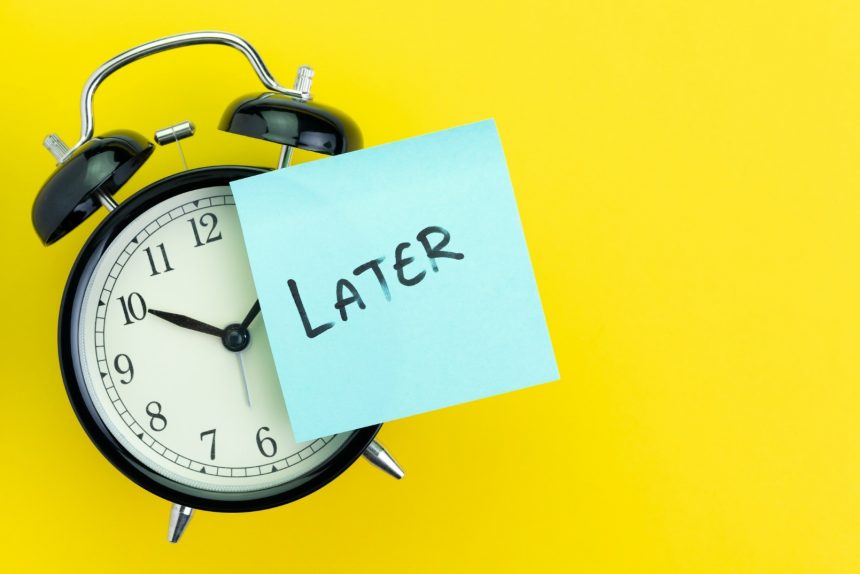By Dr. Alan Leavens
Procrastination is the act of delaying or postponing something. But it’s not just that; procrastination includes an irrational or counterproductive aspect. People often procrastinate because they’re afraid of failing at what they are attempting to finish, but it may connect with other problematic behaviors such as low self-esteem, depression, or stress. This “decision avoidance” reflects a difficulty with committing oneself to making a decision, and supporting the reasoning behind the decision. With every decision or choice, another choice is rejected, and that is difficult for some individuals. Some people who procrastinate are simply too disorganized to finish tasks in an efficient manner; they don’t utilize orderly time management techniques.
Procrastination may provide relief in the short term, but it can affect physical and emotional outcomes. High school and college students who routinely procrastinate often do not do as well as those who don’t. A Case Western Reserve University study from 1997 found that college-age procrastinators ended up with higher stress, more illness, and lower grades by the end of the semester. White and blue-collar workers who delay output produce fewer products and the products are lower in quality. The personal effect of procrastination can be devastating: insomnia, anxiety, Irritable Bowel Syndrome—these are conditions exacerbated by stress resulting from doubt and indecision.
A study on procrastination was done a few years ago on some 80 individuals. Participants read descriptions of stressful events and the accompanying anxiety caused by unnecessary delay. In one scenario, a person returned from a sunny vacation and noticed a suspicious-looking mole on his face; but put off going to the doctor for a long time.
Afterwards, participants were asked what they thought about the scenario. Procrastinators tended to say things like, “At least he went to the doctor before it really got worse.” This response reflects a desire to improve mood in the short term. The procrastinators rarely made statements like, “If only he had gone to the doctor sooner.” That would embrace the tension of the moment in an attempt to learn something for the future. Simply put, procrastinators focused on how to make themselves feel better at the expense of drawing insight from what made them feel bad.
Indecisiveness is not laziness. It’s avoidance of the potential negative consequence(s) of a poor choice. It also can be the result of perfectionism, because pursuing perfection often results in failure. It may be psychologically more acceptable to never attempt to accomplish a task than to experience the possibility of doing a poor job. Unrealistic expectations can play havoc with self-esteem, leading to self-contempt and unhappiness. Overcoming procrastination requires recognition and acceptance of failure without condemnation. It’s important to understand exactly what is happening. What specifically are you avoiding? Is there a particular type of item that you have difficulty with? You need to develop an understanding of what function procrastination plays in your life. As with with most problems, awareness and self-knowledge are the keys to figuring out how to stop negative and repetitive behaviors.
Alan Leavens PhD, is a California licensed Clinical Psychologist, living and working in SMA. For questions or concerns that you wish him to address, please email: aleavens@drleavens.com

